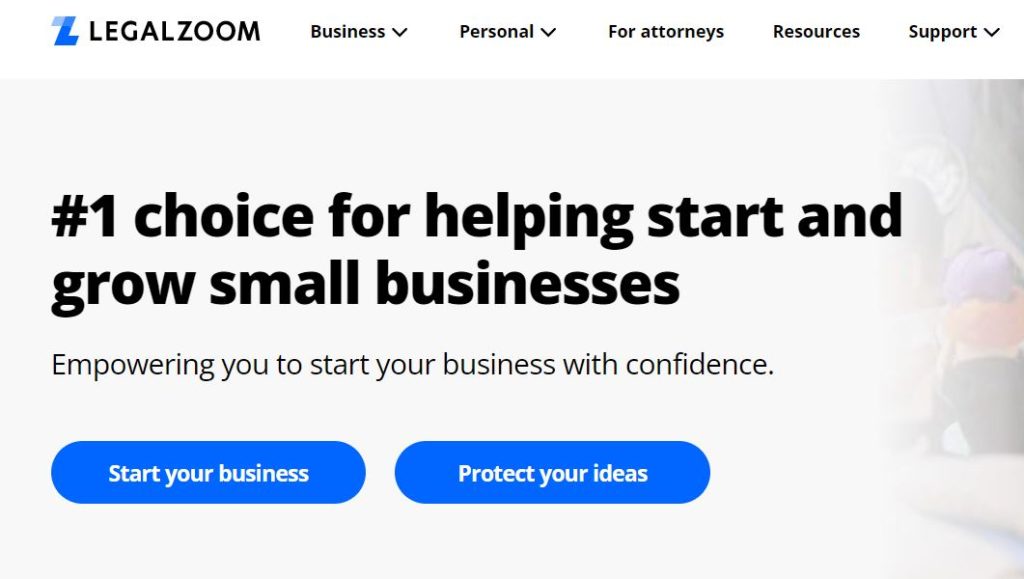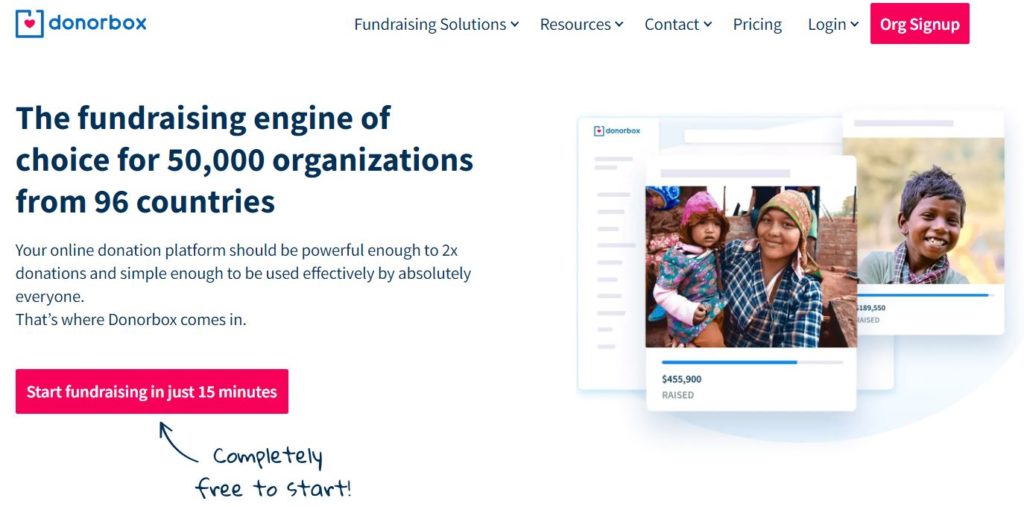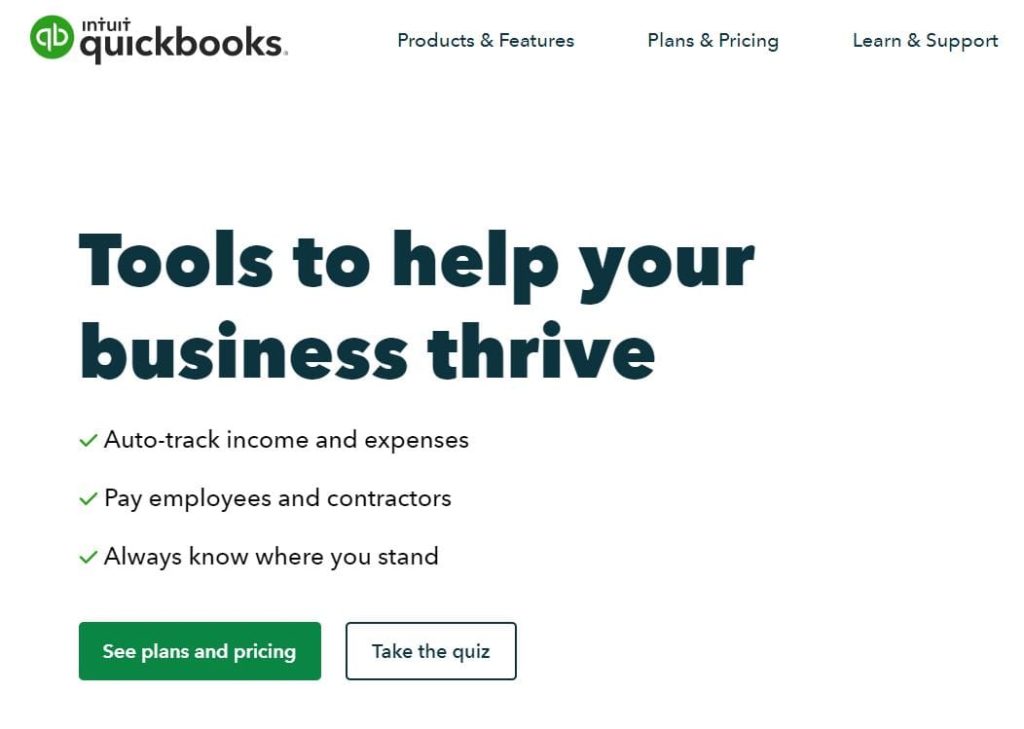If you’re starting a company, you may be wondering what kind of business entity to form. Two common options for business owners (or prospective business owners) who want to create a company that serves a social purpose are the LLC and the nonprofit.
LLCs and nonprofits offer some key advantages for this kind of business. But there are also some important differences between the two business structures that you should understand before making a decision about which one is right for your company.
The Top-Rated LLC Services for Registering Your Business
If you decide to register as an LLC, we’ve already done the hard work for you! These are the best services to register your business:
- ZenBusiness – Best overall
- Incfile – Best for entrepreneurs on a tight budget
- Rocket Lawyer – Best legal consultation services for LLCs
- LegalZoom – Most popular LLC services
- LegalNature – Best for LLC documents and contracts
- MyCompanyWorks – Best same-day processing
- Swyft Filings – Best customer service
To read our full in-depth reviews on each of these and find out which one is best for your situation, check out the full article on best LLC services here.
What Is an LLC?
When it comes to business ownership, there are a variety of different structures to choose from. For many small business owners, an LLC offers the perfect balance of liability protection and flexibility.
LLCs are designed to provide limited liability for their owners, meaning that the owners are not personally responsible for debts and liabilities incurred by the business. This type of structure is especially well-suited for businesses with multiple owners, as it helps to shield each owner from financial liability.
In addition, LLCs offer flexibility regarding how the business is run and how profits are distributed. This can be a major advantage for businesses just getting started, as it allows the owners to experiment with different business models without fear of personal financial repercussions.
Commonly confused with sole proprietorships, LLCs are distinct business entity that offers greater protection for the owner’s personal assets. LLCs also offer the option to be taxed as an S-corporation with benefits such as pass-through taxation, which can be advantageous to some businesses.
What Is a Nonprofit?
A nonprofit organization is an entity that uses its surplus revenues to achieve its goals, rather than distributing them as profit or dividends. The law in the United States stipulates that only a business that meets certain criteria can be classified as a nonprofit.
To qualify as a nonprofit, an organization must be created for religious, charitable, scientific, literary, or educational purposes. In addition, it must not be organized for the benefit of private interests and must not engage in political activities. While nonprofits are exempt from paying federal taxes, they are still required to file annual tax returns. In return for their tax-exempt status, nonprofits are expected to serve the public good and operate transparently.
As a result of these requirements, nonprofits are typically highly trusted organizations with a strong commitment to their missions.
While nonprofit organizations don’t have to make a profit, they are still required to generate revenue to support their operations. To do this, nonprofits rely on various funding sources, including grants, donations, and government contracts.
Nonprofits also have the option to apply for 501(c)(3) status with the IRS, which allows them to receive tax-deductible donations.
Additionally, members of nonprofit organizations still make money; they just don’t receive salaries or dividends like regular businesses.
The Basics of Nonprofit vs. LLC
If your business is in the early stages, you may be wondering whether to register as an LLC or a nonprofit. Here’s a quick overview of the key differences between the two:
1. LLCs are for-profit businesses, while nonprofits are tax-exempt organizations.
The main distinction between an LLC and a nonprofit is that a nonprofit is formed to serve a public or charitable purpose, whereas an LLC is formed to earn a profit. This means that nonprofits do not have to pay federal taxes per IRS subsection 501(c), whereas LLCs do.
However, it’s important to note that nonprofits are still required to file annual tax returns.
2. LLCs and nonprofits offer the same liability protection for their owners.
Both LLCs and nonprofits offer their owners limited liability protection, meaning that the owners are not personally responsible for the debts and liabilities of the business. This type of structure is especially well-suited for businesses with multiple owners, as it helps to shield each owner from financial liability.
3. Despite liability protection, the two business types are structured differently.
There are a few key differences between the structures of each business type.
A nonprofit cannot be an LLC because an LLC is a for-profit business–therefore, it cannot qualify for tax-exempt status.
The only way to use an LLC as a safe harbor for assets for a non-profit corporation is to have the LLC be a qualified subsidiary of the nonprofit corporation. For this to work, the LLC owner must be the nonprofit corporation. Only the management of an LLC may lawfully engage in activities authorized for its parent non-profit organization.
The LLC’s Operating Agreement also must state that the LLC cannot break the bylaws or limitations imposed on its member non-profit 501(c)(3) corporation. To put it another way, unless a non-profit subsidiary LLC, an LLC controlled by a non-profit corporation, and/or other permissible activities of the parent Non-Profit Corporation are permitted by the LLC’s Operating Agreement, the LLC is in violation of IRS rules for non-profit organizations.
An LLC may also engage in political activities and lobbying as they see fit.
On the other hand, nonprofits are restricted from lobbying in many ways. For example, a 501(c)(3) organization may not engage in any political activity, such as endorsing or opposing candidates for office. Additionally, nonprofits are prohibited from making substantial lobbying expenditures–meaning they can only spend a limited amount of money on activities that could influence legislation.
4. LLCs and nonprofits have different membership requirements.
LLCs can have an unlimited number of members, which can include individuals, other businesses, or foreign entities. On the other hand, nonprofits must have a minimum of three directors on their board.
It’s critical to note that board service agreements are not intended to be permanent, and they usually range from one to five years. The nonprofit bylaws must include a description of the service terms.
Another key difference is that LLC members can freely transfer their membership interests, while nonprofit members generally cannot.
There are a few exceptions to this rule–for example, if the nonprofit’s governing documents allow for it or if the member receives approval from the board of directors.
6 Tools to Start Your LLC or Nonprofit Organization
Whether you decide to start a for-profit LLC or a nonprofit organization, here are a few tools to help you get the job done.
LegalZoom
LegalZoom is one of the most popular online legal services providers, and it offers a wide range of services for businesses of all types.

If you’re starting an LLC, LegalZoom can help you select the right business structure, file your articles of organization, and obtain an Employer Identification Number (EIN) from the IRS.
For nonprofits, LegalZoom can assist with incorporating your organization, obtaining 501(c)(3) tax-exempt status, and filing for federal and state tax exemptions.
Rocket Lawyer
If you need legal consultation, Rocket Lawyer is a great option.

Rocket Lawyer offers a free trial with seven days of access to all features, so you can try out the service before committing to it.
And, if you decide to use Rocket Lawyer after your free trial, you’ll get a discount on their already-affordable monthly membership fee.
Donorbox
If you decide to start a nonprofit, one of your primary goals will be to raise money to support your cause.
Donorbox is a popular donation and fundraising platform that makes it easy for nonprofits to collect online donations.

What’s more, Donorbox offers several features specifically for nonprofits, including recurring donations, donor management, and tax-receipt management.
Mailchimp
No matter what kind of organization you start, email campaigns will almost certainly be an integral part of your marketing strategy.
Mailchimp is one of the most popular (and affordable) email marketing platforms, and it offers a range of features that are perfect for nonprofits and businesses alike.

For example, Mailchimp allows you to segment your list, automate email campaigns, and track the results of your efforts, all from easy-to-read dashboards.
Quickbooks
When you’re starting a business, it’s essential to have a solid accounting and bookkeeping system in place from the very beginning.
Quickbooks is one of the most popular accounting software programs for small businesses, and it offers several features specifically designed for LLCs and nonprofits.

Quickbooks can help you track expenses, manage inventory, and create financial reports. For nonprofits, Quickbooks can also track donations and generate tax-deductible receipts.
Hootsuite
Social media is a powerful marketing tool for businesses and nonprofits alike.
Hootsuite is a social media management platform that allows you to monitor all of your organization’s social media accounts in one place.

With Hootsuite, you can help ensure that your social media accounts are active and engaging, and you can track the results of your efforts with built-in analytics.
5 Tricks for Nonprofits and LLCs
No matter what type of organization you’re starting, there are a few key things you can do to set yourself up for success.
Here are five tips for starting a successful LLC or nonprofit:
1. You need to have a killer website.
Chances are, you know that you need to have a great website to succeed in today’s business world.
But what you may not realize is that a website is even more important for LLCs and nonprofits.
That’s because potential donors, customers, and clients will almost certainly visit your website before they decide to give you their money or support your cause or business.
There are a lot of components that go into your website, but make sure that your site is well-designed, easy to navigate, and informative.
In terms of which CMS and web hosting platform you should use, that really depends on your specific needs and budget. Some popular options for nonprofits and LLCs include WordPress, Weebly, and Squarespace.
WordPress powers 43% of the internet, and it’s easy to see why. WordPress is a free and open-source CMS that’s incredibly versatile. There are thousands of themes and plugins available for WordPress, so you can easily create a website that’s tailored to your specific needs.
WordPress is best for organizations that need a lot of customization and control, while Weebly and Squarespace are better for organizations that want an easy-to-use platform with less of a learning curve.
There are a few other things to consider when creating your website:
- User Experience: Make sure your website is easy to navigate and understand. You want users to be able to find what they’re looking for without any difficulty.
- Mobile-Friendliness: In today’s world, your website must be mobile-friendly. More and more people are using their phones and tablets to browse the web, so you need to make sure that your site looks great and works well on all devices.
- Security: Make sure that your website is secure. This means having an SSL certificate and ensuring that your site is regularly backed up.
- Load Time: Finally, you’ll want to make sure that your website loads quickly. Users are impatient, and if your site takes too long to load, they’re likely to click away and find another website. A few ways to improve your website’s load time include using a content delivery network (CDN), compressing images, and using browser caching.
2. Don’t underestimate the power of blog content.
Blogs are a great way to connect with your audience, build relationships, and drive traffic to your website. (You’re reading ours, aren’t you? And you’ll probably take our advice and some of our product recommendations, too.)
When traffic comes to your website, they’ll do the same thing if you have a blog with quality content. They will learn more about your LLC or nonprofit and be more likely to do business with you or donate to your cause.
Not only that, but blog content can also help you rank higher in search engine results pages (SERPs), which can lead to even more website visitors.
When creating blog content, make sure to focus on quality over quantity. It’s better to have a small number of well-written and informative blog posts than a large number of poorly written ones.
And, as with your website, it’s important to ensure that your blog content is mobile-friendly and easy to read. No one wants to try to read a tiny font on their phone!
3. Run the right kind of marketing campaigns.
There are many marketing opportunities, and as a business owner, it’s your responsibility to find the ones that will work best for your organization.
Email marketing is a great way to keep in touch with your customers, build relationships, and drive traffic to your website.
Social media is an excellent way to connect with potential and current customers, promote your brand, and drive traffic to your website.
Text marketing is another great option that can be used to connect with customers, promote sales and discounts, and drive traffic to your website.
Finally, don’t forget about traditional marketing methods like print ads, TV commercials, and radio ads. While these may not be as effective as they once were, they can still be a great way to reach a wider audience.
For nonprofit organizations, it is best to use marketing to show potential donors what their money will be used for. This can be done through stories, videos, or infographics.
When you host events, donate to charitable causes, or have members participate in community service, be sure to take photos and post them on social media with a link to your website. This is an excellent way to show potential donors what you’re doing with their money and how it’s making a difference.
LLCs can use marketing to attract customers and promote their products or services.
Some common marketing strategies for LLCs include search engine optimization (SEO), pay-per-click (PPC) advertising, and content marketing.
4. Have a loud voice in your niche.
One of the best ways to stand out from the crowd is to be loud and proud about what you do. Doing this is a culmination of our three previous tips and will likely be the end result.
This means having a strong presence on social media, being active in online forums, and writing blog posts or articles that show off your expertise.
It’s also important to make sure that your website is optimized for search engines so that potential customers can easily find you.
To amplify your voice, there are a few other things you can do as well:
- Participate In Online Forums and Groups: This is a great way to connect with potential customers and build relationships. Make sure to add your website URL to your profile so that people can easily find you.
- Host or Sponsor Events: This is an excellent way to get your name out there, brand your organization with things it aligns with, and attract potential customers.
- Write Guest Posts: This is a great way to show off your expertise and reach a new audience. Be sure to include a link back to your website in your author bio.
Doing all of these things will help you build brand awareness, generate leads, and attract customers.
5. Remember that it’s not about the money.
Whether you’re an LLC or a nonprofit, it’s important to remember that it’s not all about the money.
People start businesses because they’re passionate about something and they want to make a difference.
The same is true for nonprofits. They exist to help people, not to make money.
Both LLCs and nonprofits can be incredibly rewarding experiences, but neither are guaranteed to make you rich.
What matters most is that you’re doing something you’re passionate about and making a difference in the world and in your own life.
Of course, both businesses and nonprofits need to generate revenue to stay afloat. And, of course, those who stick with either pathway and execute well end up very successful. But it’s important to keep the bigger picture in mind.
The money will follow if you focus on helping others and making a difference.
What to Do Next
If you’re ready to take the plunge and start your own LLC or nonprofit, there are a few things you need to do first.
Check out our blog post on how to start a business for a step-by-step guide. And take a look at a few other blog posts to learn everything you need to know about marketing.
https://www.quicksprout.com/llc-vs-non-profit/
No comments:
Post a Comment